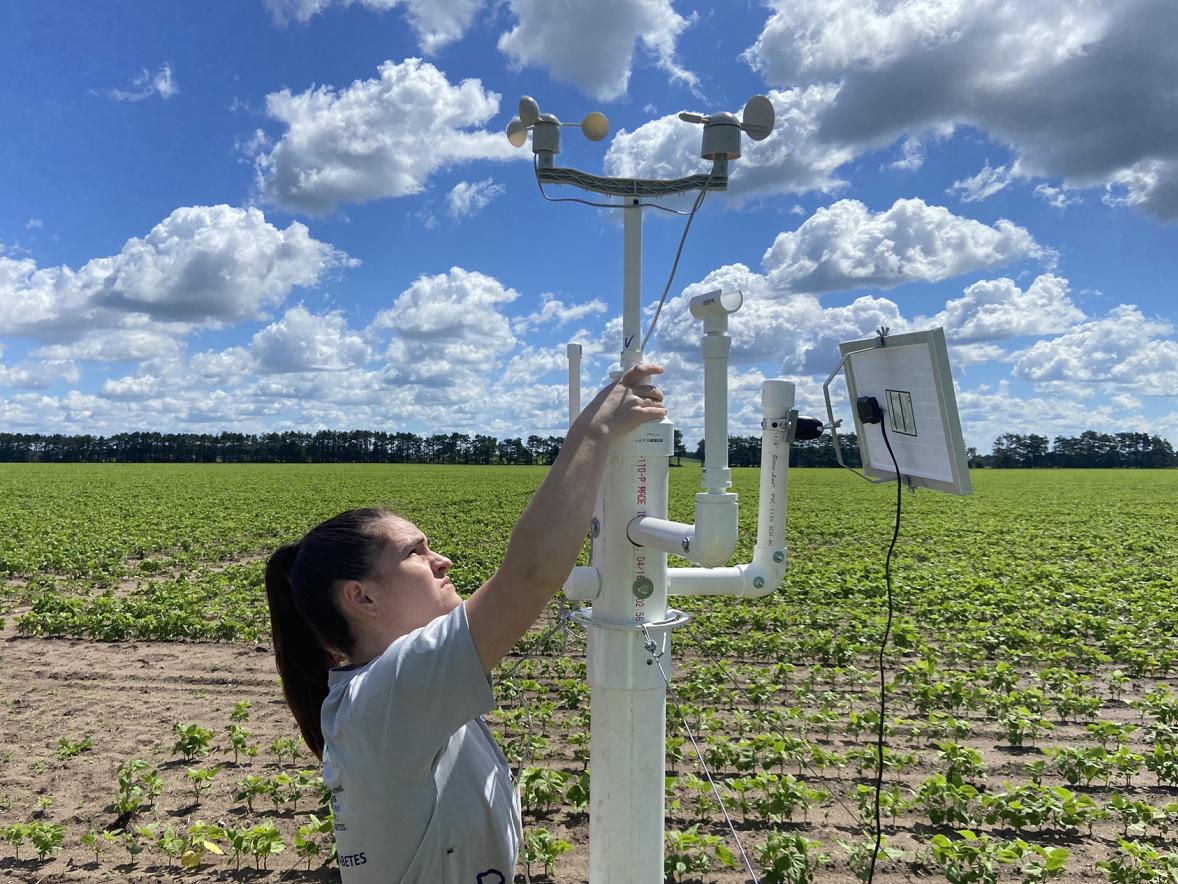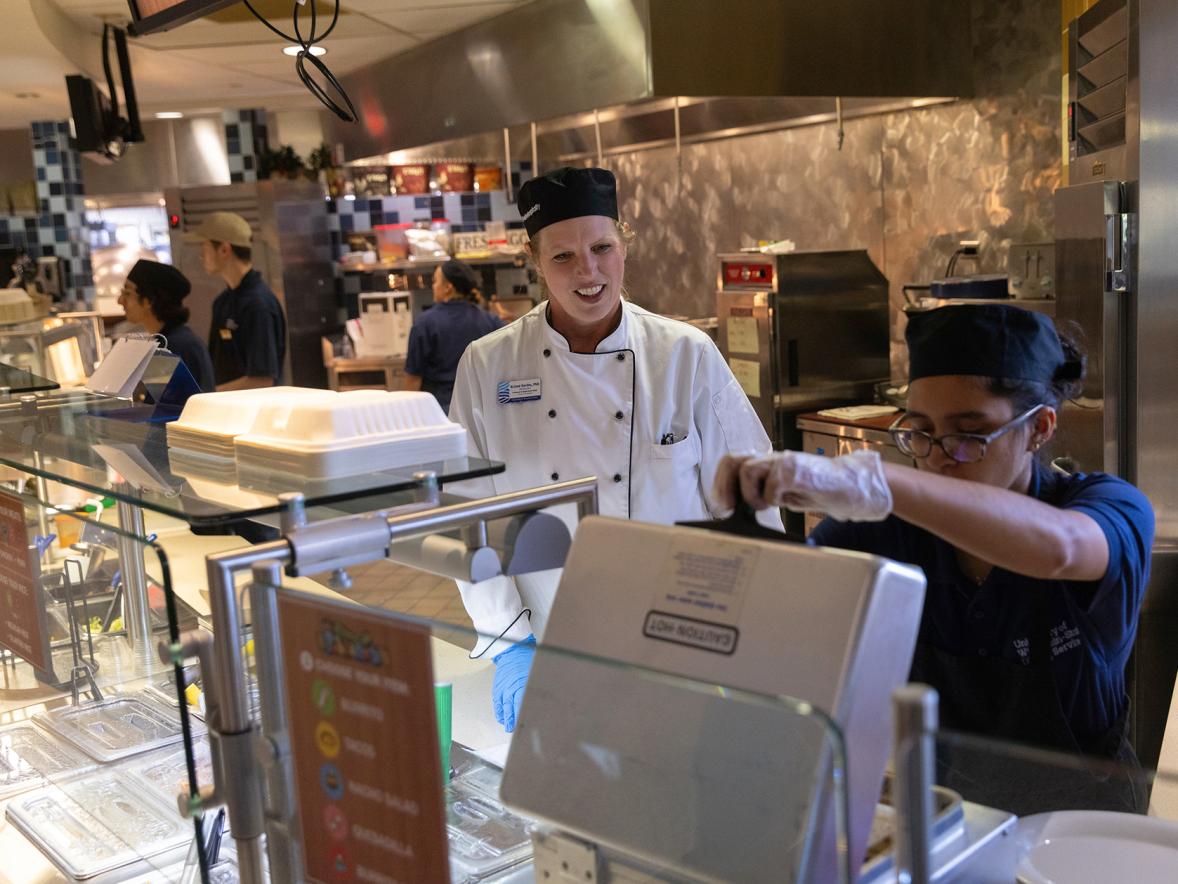On a chilly January morning at Winter Haven, an overnight shelter in Menomonie, University of Wisconsin-Stout student volunteer Serena Petersen sat at the wooden kitchen table doing homework and talking to residents.
The smell of freshly brewed coffee wafted through the air. The warmth in Winter Haven chases away not only the winter chill but the loneliness some may feel from not having a home.
Petersen, 22, a senior majoring in human development and family studies, said that after three weeks of volunteering she already had learned and grown so much.
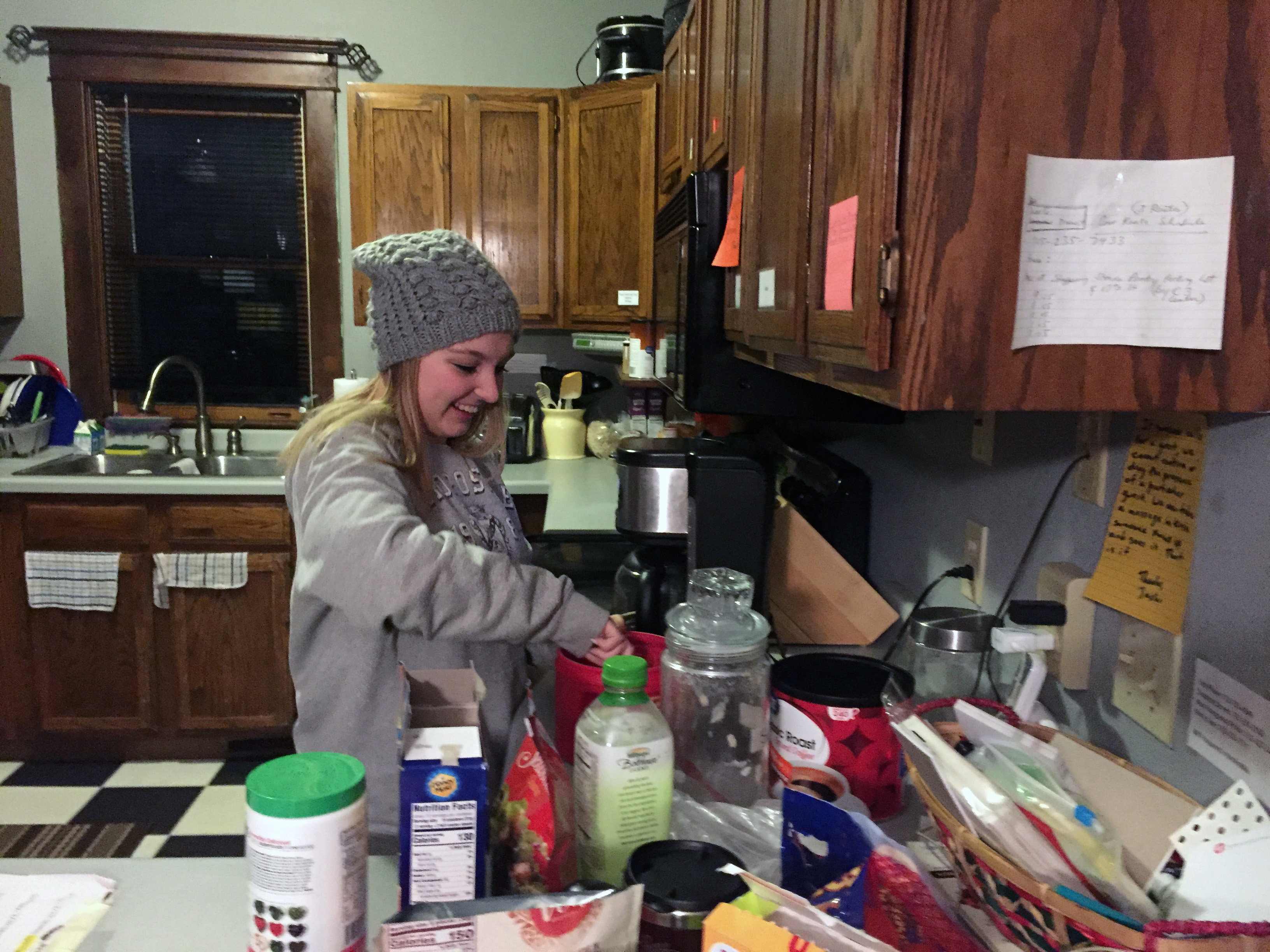
“My favorite part is the people,” said Petersen, of Delano, Minn. “You come in with this preconceived notion they are lazy or rude. It’s the opposite. They are so grateful. It’s cool you get to hear ‘thank you’ every day.
“They are just like you,” she added. “That’s important. They just need that boost. Some people are just dealt a difficult hand. It’s not about laziness, which is what people want to say it is. They want to get back on their feet and get their own place.”
At Winter Haven, 1518 Stout Road, residents will sit and talk, making Petersen feel more at home.
Winter Haven opened at its current site in 2014, providing space for 10 adults — seven men and three women — to stay overnight. Before that there was a warming shelter at St. Joseph’s Church basement for about three years. At the new site, guests have beds, showers and laundry facilities.
Women sleep on the lower level and men upstairs, while sharing some common spaces such as the kitchen and living room. The shelter is open during the winter months, and people can stay for 90 consecutive days as shelter staff members help them find housing.
University volunteers vital to Winter Haven
Volunteers staff the shelter, said Heidi Hooten, shelter coordinator for Stepping Stones of Dunn County.
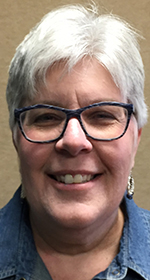 “We couldn’t do it without the volunteers,” Hooten said. “If we didn’t have volunteers we wouldn’t have Winter Haven. One of the reasons we use volunteers is that we wanted community members to learn about the problem of homelessness. It’s a community issue. Once you get to know the people you can’t demonize them. They are human beings just trying to get by.”
“We couldn’t do it without the volunteers,” Hooten said. “If we didn’t have volunteers we wouldn’t have Winter Haven. One of the reasons we use volunteers is that we wanted community members to learn about the problem of homelessness. It’s a community issue. Once you get to know the people you can’t demonize them. They are human beings just trying to get by.”
About half of the 100 volunteers each year are UW-Stout students, Hooten said.
“Homelessness largely occurs in Dunn County when people become ill, lose their jobs and eventually their housing,” Hooten said.
“We have a lot of people in recovery,” Hooten said. “They need a safe place to be from their old haunts to keep working on recovery, staying clean and getting back on their feet.”
Finding affordable housing is an issue in Dunn County, Hooten noted. From 45 to 50 people stay at the shelter from Nov. 15 to March 31.
“Usually once people find work, they have to build up a security deposit and rent money before they can leave the shelter,” Hooten said.
Residents like a family
Justin Kalkes, 22, a senior UW-Stout criminal justice and rehabilitation major, works an evening shift at Winter Haven as residents watch television, fix a snack in the kitchen or quietly work on a laptop computer.
He is a fairly new volunteer intern. “I enjoy it,” he said. “It is nice to help them. Everybody is real laid back. It is more like a family. They take care of each other.”
Kalkes said one of the difficult parts is staying awake through the night. “Coffee is definitely your best friend,” said Kalkes, of Jordan, Minn. “It’s a good time to get studying done or reading.”
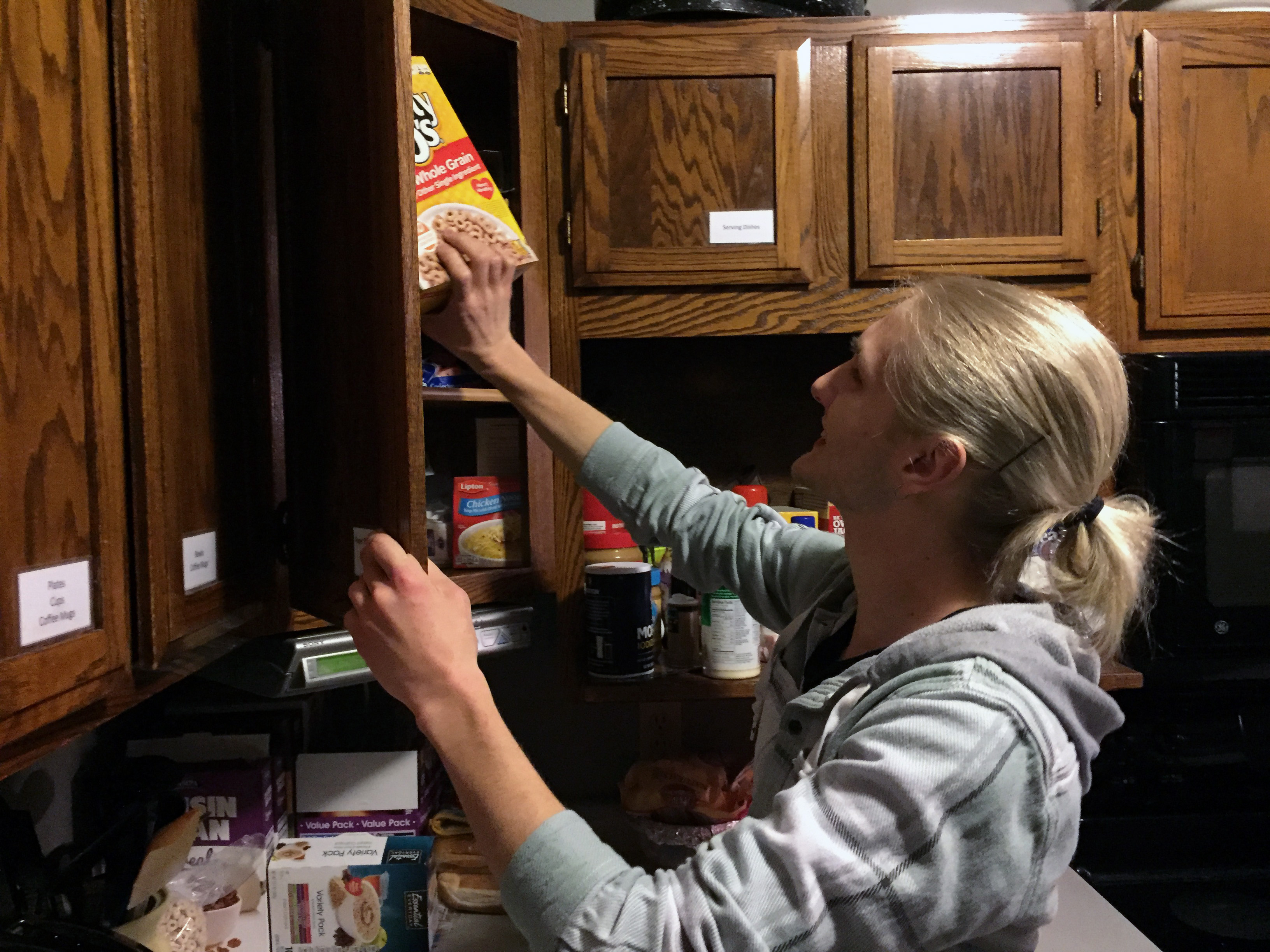
Connor Hobart, 22, a senior majoring in applied social science from Palmyra, has volunteered at Winter Haven the past four years. He started after seeing an advertisement on campus for volunteers.
“I would encourage others to volunteer at Winter Haven because it is such an important part of the community for people to have a place to sleep and have food,” Hobart said, adding that volunteering is rewarding.
“I think it is good if people may not have had personal experience with poverty and homelessness to interact with people going through those struggles,” he added. “I think it can be a positive thing for volunteers to develop more empathy and to have more compassion with other people.”
Leaving a comfort zone
At first, Petersen had trepidations about volunteering at a homeless shelter, but it has helped boost her confidence and get her out of her “comfort zone,” she said.
There are bad days as well, Petersen said, noting one day a caller yelled because a shelter spot wasn’t available.
“These are real situations and people do get stressed out,” Petersen said. “You have to remember these are peoples’ lives. It makes me more grateful. Here I am worried about mundane things, like getting homework done, and this person is looking for her next meal.”
Petersen, who is scheduled to graduate in May, wants to use her concentration in cross media graphics management to be an advocate or work in public relations for a nonprofit organization to help those in need find resources.
Petersen encourages other UW-Stout students to take the time to volunteer. “You help someone else and realize the bigger picture,” she said. “It grounds you.”
###
Photos
UW-Stout student Serena Petersen talks with one of the residents at Winter Haven overnight shelter in Menomonie, where she volunteers.
Serena Petersen makes morning coffee at Winter Haven.
Heidi Hooten
Justin Kalkes, a UW-Stout student, checks the cupboards and food supplies at Winter Haven during his volunteer shift at the overnight shelter in Menomonie.





